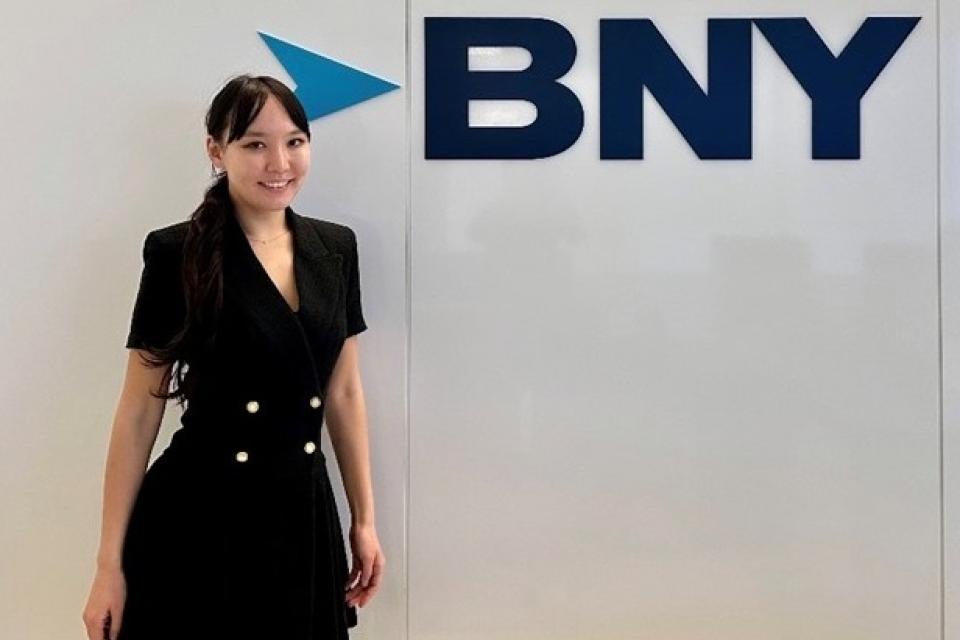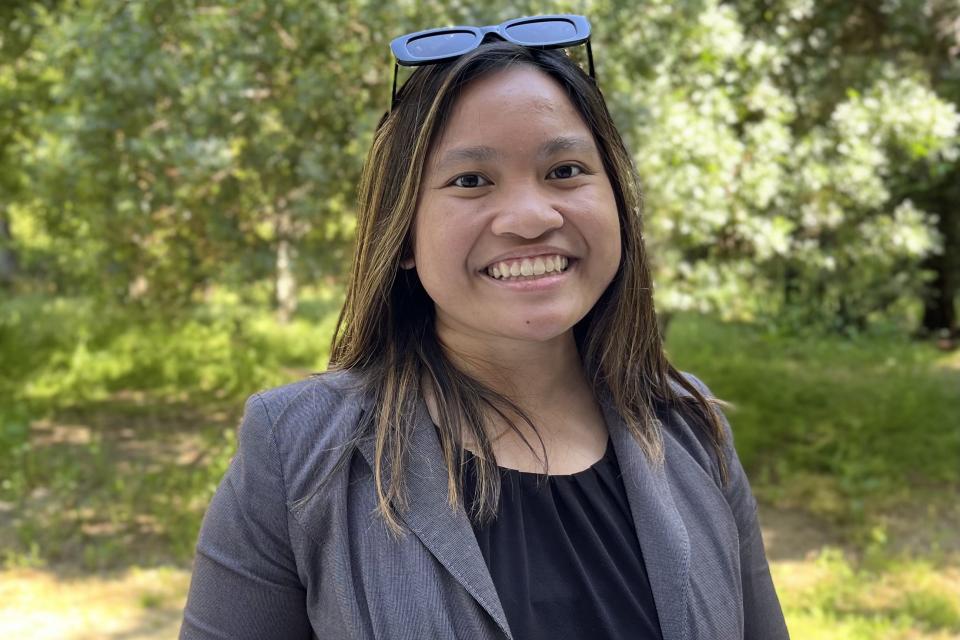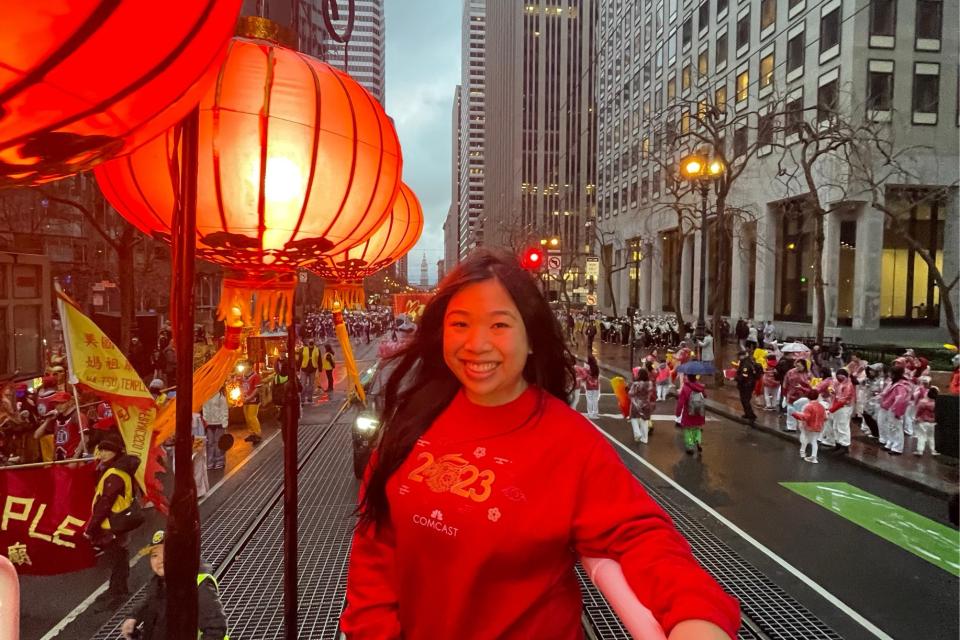Changemaker Shaping Pathways for Asian American and Pacific Islanders
MBA empowers me to honor my Hmong heritage and create social impact
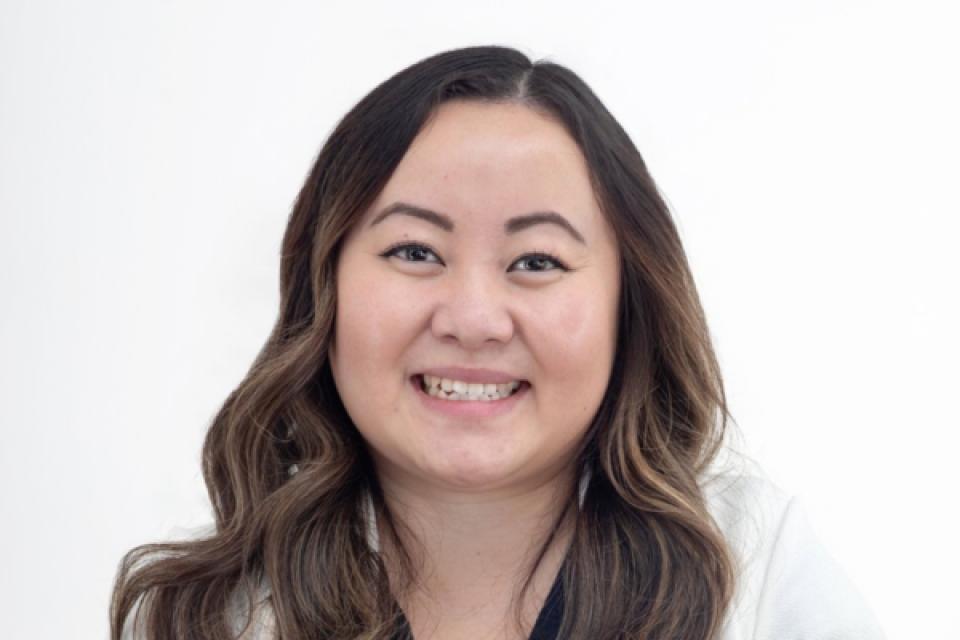
I was born and raised in Oroville, California, about 80 miles northeast of Davis, as the second to youngest of 10 siblings. I watched my parents—Hmong refugees who fled the Vietnam War with nothing but hope—sacrifice everything to build a future for their children.
As a first-generation college graduate, Hmong-American daughter from a low-income background, I understand firsthand the challenges of navigating spaces not built for people like me. Balancing two cultural identities—Hmong and American—while striving for leadership in a society where Asian American and Pacific Islander (AAPI) voices are often overlooked or invisible has shaped my path and purpose.
At a time when diversity, equity and inclusion (DEI) efforts are being challenged, the need for strong, empowered AAPI leaders has never been greater. We must step up, take space, and redefine leadership in ways that honor who we are, where we come from, and the communities we serve.
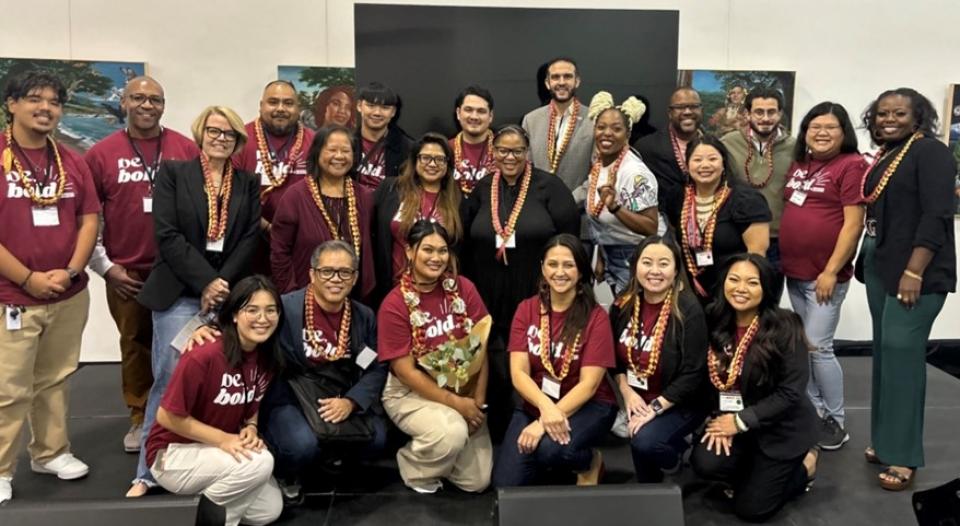
From First-Gen Student to Changemaker
In 2018, I graduated magna cum laude with a Bachelor of Arts in Sociology from California State University, Chico. Like many first-generation students, I faced financial struggles, cultural expectations, and the reality of navigating predominantly white spaces. Rather than being discouraged, I channeled these challenges into creating a real impact for underrepresented communities.
Since then, I have worked at Everyday Impact Consulting (EIC), a minority and women-owned Sacramento-based firm dedicated to reimagining systems for social justice and liberation for the past 13 years.
As the current director of movement-building initiatives, I facilitate a statewide advisory committee through the Department of Health Care Services, ensuring that Medi-Cal members—many from AAPI and immigrant communities—have a direct voice in shaping policies.
This work has reinforced my belief that leadership isn’t about holding a title—it’s about being bold enough to advocate for change.
Pursuing My MBA: Strengthening Leadership & Expanding Impact
Recognizing the need for more AAPI leaders in community-centered consulting, I pursued the Full-Time MBA program at UC Davis to strengthen my regional network and develop the business acumen necessary to one day launch my own consulting firm.
The UC Davis Full-Time MBA program has shaped my aspirations by reinforcing my commitment to innovation, cultural responsiveness and equitable business practices.
One of the most transformative courses at the Graduate School of Management has been Personal Branding with Lecturer Vanessa Errecarte. She helped me solidify my leadership mission—putting my vision into action and refining a brand that aligns with my core values of empowerment, community, and leadership.
Beyond academics, the GSM community has been invaluable. With small cohort sizes (40-50 students), the program fosters a collaborative, "community of care" culture and provides a strong support system that will continue to impact my journey long after graduation.
My advice for future MBA students is to build relationships, push yourself outside your comfort zone and always be a lifelong learner. That mindset will take you far in both your career and personal life.
Why AAPI Leadership Matters Now More Than Ever
As conversations around DEI become increasingly politicized, it’s easy for AAPI leaders to feel discouraged—like we are being pushed back into invisibility. But our presence in leadership is not optional—it’s essential.
Through my experiences in leadership, advocacy, and consulting, I’ve learned that empowering AAPI leaders means creating spaces where our voices aren’t just included but amplified.
We must:
- Challenge the status quo–systems weren’t designed for us, but we have the power to reimagine them.
- Embrace cultural identity as a leadership strength–we don’t have to assimilate to lead; our heritage is an asset, not a limitation.
- Support and uplift other AAPI leaders–when one of us rises, we all rise.
My dedication to this work has been recognized through several honors, reinforcing the visibility and necessity of AAPI leadership:
Top 40 Under 40 – Sacramento Business Journal (2023)
Top 10 AANHPI Game Changers – Asian American Liberation Network (2023)
Top 20 AAPI Change Makers – Sacramento Bee (2024)
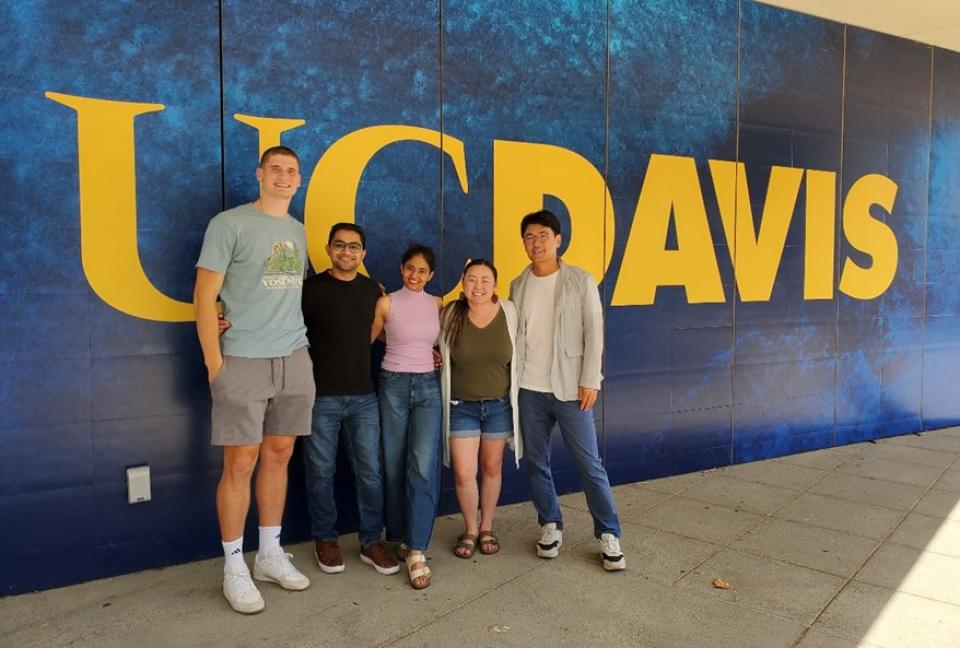
Looking Ahead: Building a Future for AAPI Leadership
My short-term goal is to continue expanding my knowledge and expertise in community-centered strategic and nonprofit consulting. But my long-term vision is even bigger: to launch my own consulting firm—a space where AAPI voices can thrive and lead change.
The UC Davis Full-Time MBA program is helping me lay the foundation, equipping me with business strategy, leadership skills, and network to make this vision a reality.
At a time when AAPI leadership is being challenged, I refuse to be silent. Now is the time for us to step into our power, own our stories, and shape the future we want to see.
We don’t just deserve a seat at the table—we are building the table.
As we continue to push forward, let’s also take time to celebrate our heritage, resilience, and collective strength. Our identities are not obstacles—they are powerful assets that shape the way we lead, inspire, and create lasting change.
Being AAPI is not just something we carry—it is something to uplift, honor and be proud of.
Let’s embrace our roots, amplify our voices, and uplift the next generation of AAPI leaders.
Our time is now.
